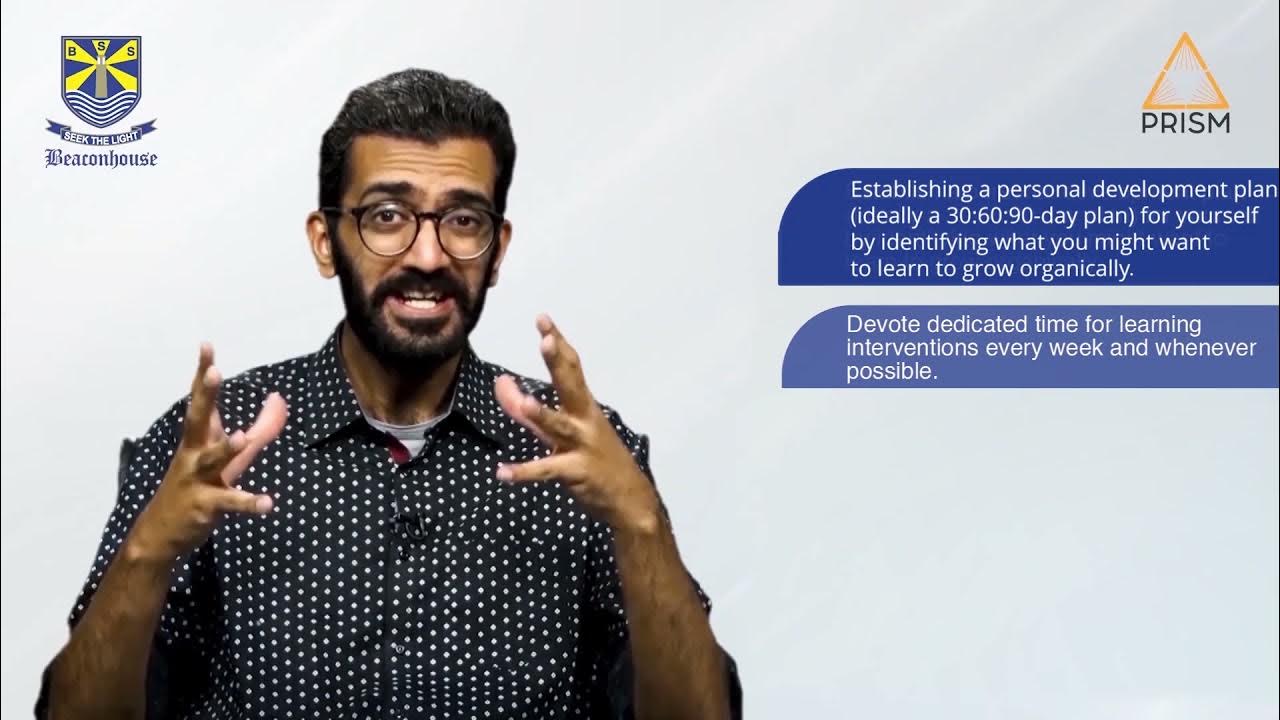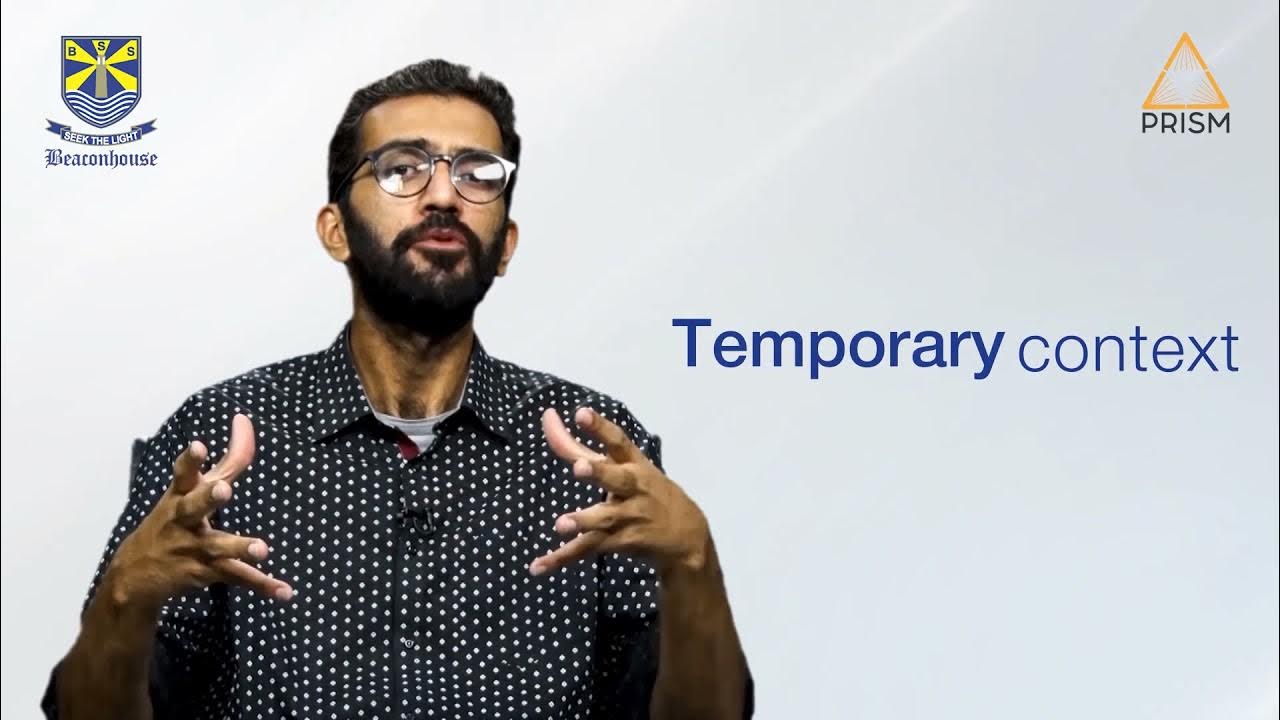BSS Part 03
Summary
TLDRContinuous learning is a key driver of personal and professional growth. It's not about achieving total mastery but about repetition, practice, and measurable progress. By fostering a mindset of self-motivated persistence, continuous learning helps individuals expand their skill sets, avoid stagnation, and adapt to ever-changing environments. It encourages innovation, keeps people employable, and contributes to a dynamic workplace culture. Embracing learning—especially through mistakes—prevents complacency, a key factor that holds back both individuals and organizations from reaching their full potential.
Takeaways
- 😀 Continuous learning isn't about total mastery but about repetition, practice, and measurable growth.
- 😀 It's a mindset that trains your brain to think of angles and solutions that might have otherwise gone unnoticed.
- 😀 Continuous learning is driven by self-motivation and helps expand skills and competencies for future opportunities.
- 😀 It contributes to personal and professional development, preventing stagnation and unlocking potential.
- 😀 Knowledge is now easily accessible, and those who don't use this opportunity risk being left behind.
- 😀 Complacency in individuals and organizations can lead to diminished capabilities and waste of resources.
- 😀 A complacent workforce can hinder leadership, innovation, and the generation of new ideas.
- 😀 Continuous learning helps maintain professional competency and promotes healthy competition among peers.
- 😀 It prepares individuals to thrive in dynamic business environments by enhancing their ability to stay innovative and relevant.
- 😀 A learning culture that encourages mistakes as part of the process is crucial for success and growth in the workplace.
- 😀 Over time, continuous learning helps maintain employability and supports efficient, less wasteful company processes.
Q & A
Why is continuous learning important?
-Continuous learning is important because it helps individuals avoid stagnation, expand their skill set, and open up future opportunities for personal and professional development. It enables people to stay relevant in a constantly changing environment.
What is the key mindset required for continuous learning?
-The key mindset required for continuous learning is persistence and self-motivation. It's about practicing repetition and being open to growth without necessarily seeking total mastery.
How does continuous learning benefit an individual’s personal and professional development?
-Continuous learning contributes to personal and professional development by enhancing skills, fostering adaptability, and providing new opportunities. It helps individuals avoid complacency and remain competitive in their fields.
How does continuous learning help to avoid stagnation?
-By consistently acquiring new knowledge and improving competencies, continuous learning ensures that individuals and organizations stay dynamic, constantly evolving, and able to meet new challenges.
Why is knowledge so accessible today, and how does this impact continuous learning?
-Knowledge is at everyone’s fingertips due to the internet and technological advancements. Those who fail to take advantage of this opportunity risk falling behind as their capabilities become less relevant in the modern world.
What happens if individuals or organizations become complacent about learning?
-Complacency stifles growth and leads to stagnation. In organizations, a complacent workforce can contribute to inefficiency, lack of innovation, and ultimately a decrease in overall productivity and leadership.
What are some of the benefits of continuous learning in the workplace?
-Continuous learning helps maintain professional competency, fosters healthy competition, enhances innovation, and builds a workplace culture where mistakes are seen as learning opportunities. It also improves employability and reduces wasteful processes.
How does continuous learning contribute to innovation in the workplace?
-By encouraging employees to stay up-to-date with new skills and knowledge, continuous learning helps individuals come up with fresh ideas and solutions, making it easier to adapt and innovate in changing environments.
Why is a culture of learning from mistakes important in a company?
-A culture of learning from mistakes is important because it promotes growth, fosters creativity, and reduces fear of failure. This openness leads to better problem-solving and idea generation within the team.
What role does continuous learning play in ensuring employability?
-Continuous learning helps individuals stay competitive by keeping their skills up-to-date, which makes them more adaptable to market changes and more valuable in their professional roles.
Outlines

此内容仅限付费用户访问。 请升级后访问。
立即升级Mindmap

此内容仅限付费用户访问。 请升级后访问。
立即升级Keywords

此内容仅限付费用户访问。 请升级后访问。
立即升级Highlights

此内容仅限付费用户访问。 请升级后访问。
立即升级Transcripts

此内容仅限付费用户访问。 请升级后访问。
立即升级5.0 / 5 (0 votes)






